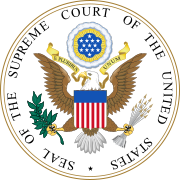I commend to you an excellent and updated analysis by the Milwaukee Journal Sentinel's political data guru Craig Gilbert of the GOP-led Wisconsin Legislature's ultra-partisan redistricting gerrymander whose constitutionality the US Supreme Court will decide.

If the Court finds the gerrymander and status quo unconstitutional, constitutionally-fair voting districts would have to be drafted and the Wisconsin GOP's lock on the Assembly and Senate majorities could be unraveled, though Gilbert's updated reporting today indicates the Court may let the gerrymander stand:
Details and more of the history, here.
As they say: if you have nothing to hide, why the secrecy?
And also do not forget that it was discovered that some records had been deleted from state computers used in the redistricting drafting process, though it could not be determined if the deletions had been in bad faith.

If the Court finds the gerrymander and status quo unconstitutional, constitutionally-fair voting districts would have to be drafted and the Wisconsin GOP's lock on the Assembly and Senate majorities could be unraveled, though Gilbert's updated reporting today indicates the Court may let the gerrymander stand:
In a related ruling Monday, the high court handed Republicans a victory by blocking a lower court ruling that the state develop new maps by Nov. 1. Democrats and those aligned with them took that order as a sign they could lose the case.I want to add more element to this story: a reminder of the malodorous secrecy with which legislative Republicans created the district maps at issue, including off-Capitol drafting in lawyers' offices, and requiring that legislator sign on pledges of confidentiality before they were allowed to see what their district boundaries looked like.
Details and more of the history, here.
As they say: if you have nothing to hide, why the secrecy?
And also do not forget that it was discovered that some records had been deleted from state computers used in the redistricting drafting process, though it could not be determined if the deletions had been in bad faith.
James -- when doing their review, wIll the the U.S. Supreme Court have access to details around the secrecy and lack of public notice when the districts were drawn, and to the obstruction, damage to computer hard drives and delays by the Republicans when turning over redistricting materials as ordered by the lower courts?
ReplyDeleteThe lawyers can put that history in the briefs.
ReplyDeleteThanks!
ReplyDelete